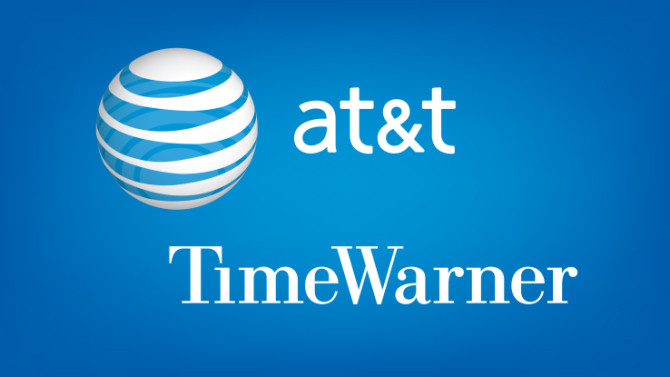
program areas Digital Consumer
Program Areas
-
News
A Big Win for Commercial Surveillance on the Internet -- a Gigantic Loss for Democracy
US Citizens and Consumers left further exposed to unfair and discriminatory data practices.
The following can be attributed to Katharina Kopp, Policy Director, Center for Digital Democracy. --- Today’s House vote to overturn the first major Internet privacy protection for Americans, may be a win for ISP monopolies, but it’s a tragic loss for our democracy. Broadband providers, such as AT&T, Comcast and Verizon, will now be able to sell our sensitive information to the highest bidder without first receiving our permission. We believe today’s misguided vote will unleash even more “Big Data” profiling and tracking of Americans, and spur an array of discriminatory practices. Without any restraints, ISPs will dramatically erode what should be an important American fundamental right—that of privacy. If President Trump allows this bill to become law, his Administration will place new burdens on hard-working Americans and their families—who will be at the mercy of a handful of digital giants. CDD and our allies, here and in the EU, pledge to continue our fight against the special interests that have gained new ways to control how we use the Internet and other digital media. Contact: Jeff Chester Executive Director Center for Digital Democracy Washington, DC. www. democraticmedia.org jeff@democraticmedia.org (link sends e-mail) 202-494-7100 -
Blog
Americans Lose Privacy Rights in Senate Vote
Now will be exposed to ongoing commercial surveillance of their most personal information
Americans lost a crucial right today as the GOP-controlled Senate voted to overturn the only federal protection that could have protected their privacy online. This is a key victory for lobbyists from the ISP monopolies, such as AT&T, Comcast, and Verizon. These companies have built a “Big Data" business model to track—and profit from—our every move online. Today, Americans who use personal computers, mobile phones and other online devices are the victims of continuous monitoring of their digital activities. Internet companies know where we shop, what we buy, who are friends are, how we use multiple “screens" and much more. ISPs have also acquired the power to take our data and generate powerful insights that can be used in far-reaching ways. Without the FCC rule, American ISP customers will have no real privacy protections because of current limitations placed on the Federal Trade Commission by Congress and the courts. The FCC rule would have been the first new commercial privacy protection for Americans since Congress passed the Children’s Online Privacy Protection Act (COPPA) in 1998. Under the FCC safeguard passed last October, a subscriber would first have to give consent—opt-in—before their most sensitive data (such as geo-location and web browsing activities) could be used in digital dossiers designed to deliver targeted marketing. It’s clear that the GOP Senate, the big broadband companies, and major advertisers were terrified of having to ask American consumers permission before using their information. Today’s vote should trigger the European Union to begin reviewing the so-called “Privacy Shield” agreement that allows data to flow between the EU to the U.S. Today’s decision puts our trading partners—and the U.S. companies that depend on the flow of information—at risk. We will ask our EU consumer colleagues to press the European Commission to revoke the “shield." Today’s Senate vote was also a key learning moment for Americans, who heard from Sen. Ed Markey and others concerning what is at stake as broadband companies now gain a front-row seat to gather and sell our personal information. Even if the new FCC rule is overturned by the House and signed by the President, there will be an ongoing campaign to expose the powerful data-gathering apparatus that is being assembled by the phone and cable broadband companies. Jeff Chester CDD is a consumer digital rights group based in DC. -
January 27, 2017 - The Center for Digital Democracy and 18 media justice, consumer protection, civil liberties, and privacy groups strongly urge congressional leaders to oppose the use of the Congressional Review Act (CRA) to adopt a Resolution of Disapproval overturning the FCC’s broadband privacy rules.---Click the link below for the full PDF of the letter.
-
Re: Exploring Special Purpose National Bank Charters for Fintech Companies Dear Comptroller Curry: The Center for Digital Democracy and U.S. Public Interest Research Group (U.S. PIRG) agree with the consumer, civil rights, and community groups and their separately filed group letter in which they expressed strong opposition to the proposed new federal nonbank lending charters. U.S. PIRG also signed and concurs with the detailed comment from National Consumer Law Center et al. The Office of the Comptroller of the Currency (OCC) must not undermine state rate caps; must not weaken states’ ability to oversee lenders and act to prevent harmful lending practices; and the OCC must not undermine efforts to provide fair and inclusive lending practices, particularly for people of color and low- and moderate-income consumers, in the areas where they operate. Further, the OCC must not allow nonbank lenders to engage in practices that violate privacy rights, or engage in unfair data and marketing practices. State laws often operate as the primary line of defense for consumers and small businesses. The OCC’s charter proposal inadequately protects consumers from these harmful practices and it should not take state law enforcers off the beat of preventing these practices. Center for Digital Democracy and U.S. PIRG file this supplemental comment to focus on the digital rights and consumer privacy concerns raised by the use of opaque Big Data algorithms used by Fintech firms. These practices increasingly threaten consumer privacy and the OCC must also take them into account when considering non-bank special purpose charters. An ongoing and increasingly challenging issue confronting citizens and consumers is the new threats to their privacy and their ability to control how personal and non- personal data about their online and offline behavior are collected and used by online financial services companies. The use of personal data by Fintech companies is pervasive and touches every aspect of their business operation, including marketing, customer loyalty management, pricing, fraud prevention, and underwriting. Fintech companies use many new on- and offline data sources, either directly collecting data from consumers or relying on third parties for Big Data analytics to classify consumers and to make predictions about them. Assigning individuals to socially constructed classifications and then making inferences about them based on group profiles is likely to have consequences that are not well understood and may further increase social inequities. Consumers’ privacy is increasingly undermined and no adequate protections are in place. The OCC must not allow an expansion of these practices via a federal charter that does not provide for adequate privacy safeguards. The OCC must proactively investigate unfair marketing practices and not grant national licenses without affirmative protections. Fintech companies are using Facebook, Instagram, and other digital behavioral data that combine data and interactive experiences to influence consumers and their social networks. Sophisticated data-processing capabilities allow for more precise micro-targeting, the creation of comprehensive profiles, and the ability to act instantly on the insights gained from consumer behaviors. Targeted and highly personalized marketing offers can be intrusive and foster consumer behaviors that are not in the best interest of the individual. Behavioral science shows that consumers are susceptible to ‘nudges’ which raises concerns about the risk of financial institutions taking advantage of the behavioral biases and limitations of consumers. Increasing personalization which Big Data makes possible, could also reduce the comparability of products, making it harder for consumers to compare one offer with another which could have an impact on market competition. Similarly, lack of transparency around the processing of data and automated algorithms may lead to increasing information asymmetries between the financial institution and the individual and thus consumers are left with less awareness and a lack of understanding and control over important financial decisions. These practices happen behind the scenes and can only be addressed by a vigilant regulator. The OCC should not allow fintech companies to operate a national license without properly addressing these data practices. The OCC must also not allow nonbank lenders or partner depository institutions to engage in unfair and discriminatory lending practices. The use of ‘alternative data’ sources can be the cause of bias or contain errors and may lead to consumer harm or unfairness. While alternative credit scoring can be a boon for the underbanked, there need to be standards and safeguards to ensure that any new data are not biased and that their use may not lead to unintended consequences. While industry has argued that increased automation will help expand access to credit and lower costs overall, credit models that are more “accurate” may lead to a more stratified society, as it will leave those at the bottom potentially excluded from credit forever. Models that judge individuals against group profiles based on past data inevitably incorporate elements of past inequality and discrimination. Communities of color are thus most vulnerable. Unless additional policies are put in place to address these consequences, inequality is likely to become more entrenched the more we rely on models for risk evaluations. Fintech platforms must comply fully with the requirements of the Fair Credit Reporting Act and Equal Credit Opportunity Act. In conclusion, the OCC must not grant new federal nonbank lending charters that would give firms free rein to use unfair data and marketing practices. Instead the OCC must proactively mitigate risks from unfair data, marketing, and lending practices that threaten to undermine privacy, consumer rights and economic inclusion. Sincerely, Jeff Chester and Katharina Kopp Center for Digital Democracy Edmund Mierzwinski U.S. PIRG Recommended further reading: BIG DATA MEANS BIG OPPORTUNITIES AND BIG CHALLENGES: Promoting Financial Inclusion and Consumer Protection in the “Big Data” Financial Era U.S. PIRG Education Fund and Center for Digital Democracy, 27 March 2014 Available at http://www.uspirg.org/reports/usf/big-data-means-big-opportunities-and-b... (link is external)
-
Blog
Statement on Edith Ramirez resignation
Leaves a strong consumer protection legacy for 21st Century
Edith Ramirez brought the FTC into the 21st century. Under her leadership, the agency made it clear that new technologies had to treat consumers fairly, including when it came to protecting their privacy. Through enforcement, litigation, and publicly exposing new threats, Edith Ramirez’s commission has created a unique consumer protection legacy that will have a long-lasting and positive impact. Ramirez’s tenure has also been marked by a strong commitment to protecting economically vulnerable and other at-risk consumers, including those who reflect the country’s diversity. More than any other federal agency, Ramirez’s FTC understood how the emerging “Internet of Things”—where we are always connected online—provided both a promise and a threat. Through a series of cutting-edge cases—Snapchat, (link is external) D-Link (link is external), inMobi (link is external) and Turn (link is external), for example—the commission made it clear that tech companies that deceived consumers or failed to protect their security would be punished and publicly shamed. Companies, including Amazon (link is external), Google (link is external) and Apple (link is external), that failed to ensure that consumers who purchased apps had been treated fairly had to change their practices. New and deceptive ways in how companies advertise to the public also came under her scrutiny, including the role of “influencers.” Cases included Machinima (link is external) and Warner Brothers (link is external), for example. Ramirez assembled a highly effective and strategic consumer protection team, led by bureau director Jessica Rich. The commission played a major role in the $10 billion settlement with Volkswagen (link is external), and also pursued cases where vulnerable consumers had been financially harmed (such as DeVry (link is external) University and Cancer Fund of America (link is external)). It also took on challenging cases to make it clear that the agency had the authority and responsibility to proactively act in the best interests of consumers (e.g., Wyndham, (link is external) Herbalife, (link is external) and Lifelock (link is external)). Ramirez cast a spotlight on emerging privacy issues involving “smart TV’s,” cross-device tracking, and other technologies. The agency also created a new Office of Technology Research and Investigations, within the Bureau of Consumer Protection, to stay on top of digital media and data developments. Finally, Edith Ramirez understood that all Americans require effective consumer protection. Under her leadership, the FTC expressly reached out to Hispanics, African Americans, and others in order to involve them in the work of the commission. Jeff Chester, CDD -
Blog
Americans Win Significant Broadband Privacy Rights in Historic FCC Decision
Consumers should now have greater control of their information in today’s “Big Data” era
Statement of Jeff Chester, executive director, Center for Digital Democracy October 27, 2016: The Federal Communications Commission, led by Chairman Tom Wheeler, delivered a very early Christmas present to Americans today. For the first time, the public will be guaranteed that when they use broadband to connect to the Internet, whether on a mobile device or personal computer, they will have the ability to decide whether and how much of their information can be gathered and used by Internet Service Providers (ISPs) without first getting their consent. This is a tremendous public interest breakthrough for privacy rights in the U.S., which lags behind nearly every other democracy when it comes to protecting online privacy. Today’s decision (link is external) provides a new crucial consumer protection safeguard. When consumers use a mobile app or engage in search, that information cannot be stealthily monitored and used by their ISP without a person first agreeing it can do so (known as opt-in). Such information is classified by the commission as “sensitive” data and triggers a set of rights for the consumer. The new rule is a critical building block for better protecting our privacy in this period of growing commercial surveillance, and should significantly curtail the ability of ISPs to stealthily monitor our activities. The handful of phone and cable giants that dominate the broadband telecommunications market are increasingly using sophisticated data-mining techniques to track and analyze their customers, whether at home or—via a mobile phone—on the go. This new rule will help ensure that a consumer’s most personal information—about their finances, health, geo-location, children—will not be swept into this far-reaching apparatus. Safeguards to prevent unfair “pay-for-privacy” schemes are also part of this new FCC order—and we expect the commission to be vigilant to make sure consumers aren’t forced, because of financial circumstances, to give up their privacy. The 3-2 vote is also a rejection of the intense lobbying conducted by the phone and cable lobby, as well as by other Internet giants, to effectively kill the plan. They aggressively lobbied to weaken the FCC’s proposal, disingenuously arguing that the commission should merely adopt the Federal Trade Commission’s privacy regime. They preferred the FTC’s approach because it doesn’t have any real legal teeth, and has allowed Internet giants to freely gather and use our data without any regard to our privacy. One reason that Americans face a crisis today in terms of their loss of privacy is because the FTC has been prevented from having the regulatory authority to actually protect the public. The very same companies calling for its approach have tirelessly worked to undermine its authority, in Congress and the courts.CDD would have preferred an earlier version of the commission’s privacy proposal that didn’t make distinctions between sensitive and non-sensitive data. This is a concept that is increasingly irrelevant today, because of technological advances in “Big Data” analytics and the massive growth of consumer data across all devices, where innocuous data can be used to generate highly personal and sensitive details. But today’s FCC decision is a critical advance in protecting our information. This decision sets the stage for a long-overdue debate on the need also to protect the privacy of Americans who use other online services, including Google and Facebook. It sets a critically new privacy baseline, which should lead to action by Congress that provides strong privacy protections for all of us, regardless of the devices or online services we use. These rules also need to be applied to any plans by AT&T and Time Warner to expand their commercial data activities under their proposed merger. Finally, this victory would not have been possible without the FCC’s Open Internet decision (network neutrality). That triggered this privacy review, so that long-standing privacy safeguards when we use our telephones was brought up to date. A truly open and democratic Internet requires one that incorporates robust privacy safeguards. Today’s decision is step one in helping achieve that important goal. -
Blog
Time Warner's "Big Data" Cloud"--what they bring to AT&T Deal
Most Powerful Data Co's as "Turner Broadcasting Aligns with Epsilon, Krux and Oracle to Power New Turner Data Cloud and Turner Premium Marketplace"
Turner Broadcasting is partnering (link is external) with Epsilon, (link is external) Krux (link is external)and Oracle to enable advertisers and their agencies to connect to the Turner Data Cloud (TDC), the company’s advanced data management platform (DMP) originally announced at the company’s Upfront last month. Through these advanced third-party targeting capabilities along with Turner’s own proprietary data sources, TDC will aggregate and analyze first-and third-party data to provide advertisers, agencies and Turner itself more effective methods to reach and engage target audiences. “We are joining forces with industry-leading data and technology companies to power the Turner Premium Marketplace powered by an unrivaled central repository of data,” said Stephano Kim, Chief Data Strategist, Turner Broadcasting. “Fueling multi-screen ecosystems, Turner Premium Marketplace will enable our sales divisions to take their client conversations to a new level of insight and strategy to more effectively execute advertising campaigns across Turner’s portfolio. Brands advertising on Turner properties now have the enhanced ability to reach the most appropriate and desirable audiences across all user experiences wrapped in our premium content.” The Turner Premium Marketplace includes both digital and linear advertising campaigns across the company’s portfolio of entertainment, news, sports and kids brands. Advertisers and their agencies can choose to transact directly and programmatically depending on their unique campaign goals and business objectives. Through the Turner Data Cloud, advertisers can harness the power of their first party data in addition to third party data to effectively engage consumers and reach the right audience across Turner – a portfolio spanning television, digital and mobile platforms that reaches approximately 75% of all Americans. In addition to providing stronger advertising solutions, TDC will allow for better personalized consumer experiences across Turner’s own multiscreen brand destinations. “Turner Broadcasting is at the forefront of the evolution of content distribution,” said Andy Frawley, chief executive officer of Epsilon. “To enable the strongest possible brand experience for a consumer, it is imperative to leverage the power and value of data to drive marketing, advertising and programming to better connect the consumer’s experience and engagement. We look forward to leveraging our full suite of Big Data capabilities to support the Turner Data Cloud.” "The Turner Data Cloud is another industry-leading move by Turner, and we're proud that Krux's real-time DMP is at the center of this solution,” said Krux CEO Tom Chavez. "Through Krux, Turner is unifying people data across all channels and employing unparalleled identity management to activate highly specific audiences across linear and digital campaigns. What’s more, with Krux’s iterative learning capabilities, Turner advertisers can apply real-time campaign optimizations to drive higher conversions.” "Oracle Data Cloud (link is external) is thrilled to collaborate with Turner to help their clients understand more about consumers based on what they do, say, and buy, enabling them to personalize and measure every customer interaction in order to maximize the value of their digital marketing,” said Omar Tawakol, GM of Oracle Data Cloud. "Our relationship with Turner will allow their clients to spend confidently knowing that their ads can be reliably delivered to the right consumer across screens." -
Center for Digital Democracy, Center for Democracy & Technology, Consumer Action, Consumer Federation of America, Consumer Federation of California, Consumers Union, Electronic Privacy Information Center, National Association of Consumer Advocates, National Consumers League, Benton Foundation, Common Sense Kids Action, and Privacy Rights Clearinghouse file this brief to highlight the potential far-reaching ramifications of this case as well as the degree to which the panel decision breaks from century-long precedent, thereby creating a sharp split among the courts of appeals.First, the panel opinion raises issues of exceptional importance. If allowed to stand, the ruling could immunize from FTC oversight a vast swath of companies that engage to some degree in a common carrier activity. This result is unprecedented, deeply disruptive to the market, and at odds with Congress’s intent. Many of the world’s largest companies offer broadband Internet or other common carriage service. These highly diverse companies could harm consumers by committing acts that are deceptive or unfair, breach privacy commitments, fail to provide reasonable security for sensitive personal data, violate any of the seventy consumer protection statutes Congress has directed the FTC to enforce, or, as in the AT&T case, deliberately omit critical information about the services a company provides – and nonetheless escape FTC enforcement. No other federal agency has authority to fill this void.Second, the panel’s decision creates a deep Circuit split by breaking from the 100-year-long understanding that the term “common carrier” is defined by activities, not status. Departing from established norms of statutory construction, the panel failed to heed settled interpretive rules requiring that exemptions from antitrust laws be construed narrowly; that remedial statutes be read broadly to effectuate their purposes; and that an agency’s interpretation of its organic statute be accorded deference. The panel’s inversion of decades of precedent creates a substantial regulatory gap and puts the Ninth Circuit directly in conflict with the D.C. and Second Circuits.---For the full argument, see the attached PDF.
-
Blog
need-to-know 1084
AT&T: “cross-device connections allow AT&T to understand that a single user is accessing AT&T services from multiple devices, and to synchronize content and advertising messages across those devices....”We have data coming from 35 million set-top boxes...There’s a long list of people we partner with, like Experian, Acxiom, Kantar and Polk."
excerpt from recent interview (link is external)with Rick Welday, president of AT&T AdWorks, 13 October 2016. ...AT&T is doubling down to understand the network effect of its merged mobile carrier and pay TV footprint. And it plans to up its investment in video programming by acquiring more of the content supply chain...Cross-screen targeting is also a big imperative. AT&T just completed a series of targeting pilots to measure the impact of addressable TV ads served to 14 million AT&T-DirecTV households and 30 million associated devices….AT&T has the opportunity to be the first fully integrated carrier in the United States. You’re taking a large MVPD, pay-TV provider and a scaled mobile and broadband business and bringing them together, and that’s unique. Today, we help advertisers place an ad based on interest or demographics in any one of 14 million households regardless of what they’re watching or when, whether it’s live or on playback. ...When the DirecTV merger completed, we had 12 million addressable households. We’re now [at] nearly 14 million. For us to have grown addressable households by 2 million shows our commitment. Out of those 14 million homes, we can identify about 30 million devices that are associated and help marketers identify their target audience across them without sharing personally identifiable information. Do you have a data management platform that would help you track consumer movement? We have data coming from 35 million set-top boxes, so we have incredible first-party data capabilities. We have to have a deep technical ability and transparency with our clients about where and when the ads get placed. Clients are more interested in making sure the ad gets to their targeted audience, but we still share information about the content and day part where the ad fired. Usually the client connects their data to a safe haven, where we’d [also include] our inventory and see where there’s overlap. Then we’d render the ads. There’s a long list of people we partner with, like Experian, Acxiom, Kantar and Polk. Where do you see the most opportunity for AT&T’s mobile data subscriber set? Will it, for instance, help close the loop between location, the in-store purchase and TV viewership? Right now we’re not using data from our mobile customers, but we’re well aware of the opportunity for them to consume more video solutions and advertising within our developing video services. We’re very excited about our ability to monetize through advertising within our mobile base. How that evolves, there’s nothing further we’d forecast or announce right now. Who is AT&T’s biggest competitor right now? Is it other telcos or are you keeping an eye on platforms with a large, logged-in user base like Facebook? There’s no question Facebook and Google are competitors. There is no shortage of options for advertisers. Everybody knows a lot of money is moving to the digital space. I think, for us, when we look at wwhere the growth is, it’s clearly going toward targeted, more audience-based advertising. Even in digital, growth is not riding on the backs of display or search advertising. It’s coming from mobile video. AT&T, having acquired DirecTV with the stated purpose of being an integrated carrier that specializes and leads and innovates in mobile video, that’s a good thing for us….When the DirecTV merger completed, we had 12 million addressable households. We’re now [at] nearly 14 million. For us to have grown addressable households by 2 million shows our commitment. Out of those 14 million homes, we can identify about 30 million devices that are associated and help marketers identify their target audience across them without sharing personally identifiable information. Excerpt 2: (link is external) The cross-device implications of an AT&T/Time Warner hookup are also clear: massive reach, distribution and data. It claims to have 141.8 million wireless customers in the US and Mexico, 15.6 million internet connections and 45.5 million video connections across DirecTV and U-verse. “It’s a significant audience, especially when you bring DirecTV into the mix, being able to use that data and that deterministic linking for more relevant messaging across all of those different sources, both owned-and-operated, and being able to take that outside of O&O across multiple channels and screen,” said Adelphic CEO Michael Collins. Both AT&T and Time Warner have deterministic user data across a wide array of channels. “They have it through DirecTV, they have it through AT&T’s ISP and AT&T’s television service and they have it through Time Warner’s wide distribution,” Collins said. “That’s sticky content and a very broad audience, and it’s all done on a deterministic basis, which makes it pretty powerful. I don’t know if you’d say it’s unique, but it’s certainly highly differentiated.” AT&T is already schooled in the ways of cross-device. Its privacy policy very clearly states that it uses both Tapad and Drawbridge “to establish connections between a user’s devices and to provide behavioral targeting across devices,” noting that “cross-device connections allow AT&T to understand that a single user is accessing AT&T services from multiple devices, and to synchronize content and advertising messages across those devices.” It’s only logical that AT&T will take its cross-device program to the next level with Time Warner on board. “One would have to imagine that Time Warner and AT&T are looking to bring content and distribution together for seamless distribution and content across screens,” Collins said. “But marketing and advertising are evolving as well, and the potential combination of Time Warner and AT&T would give them knowledge, insight and the ability to deliver highly relevant advertising on behalf of advertisers.”




